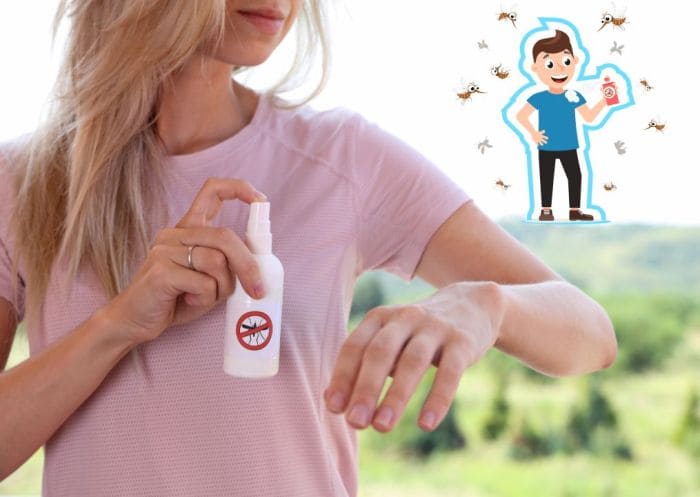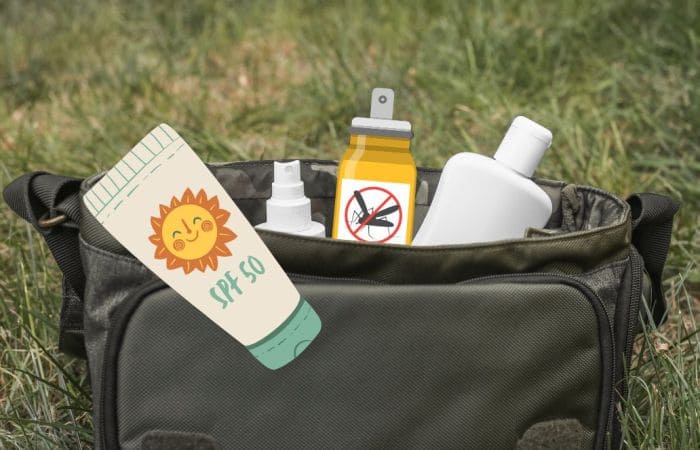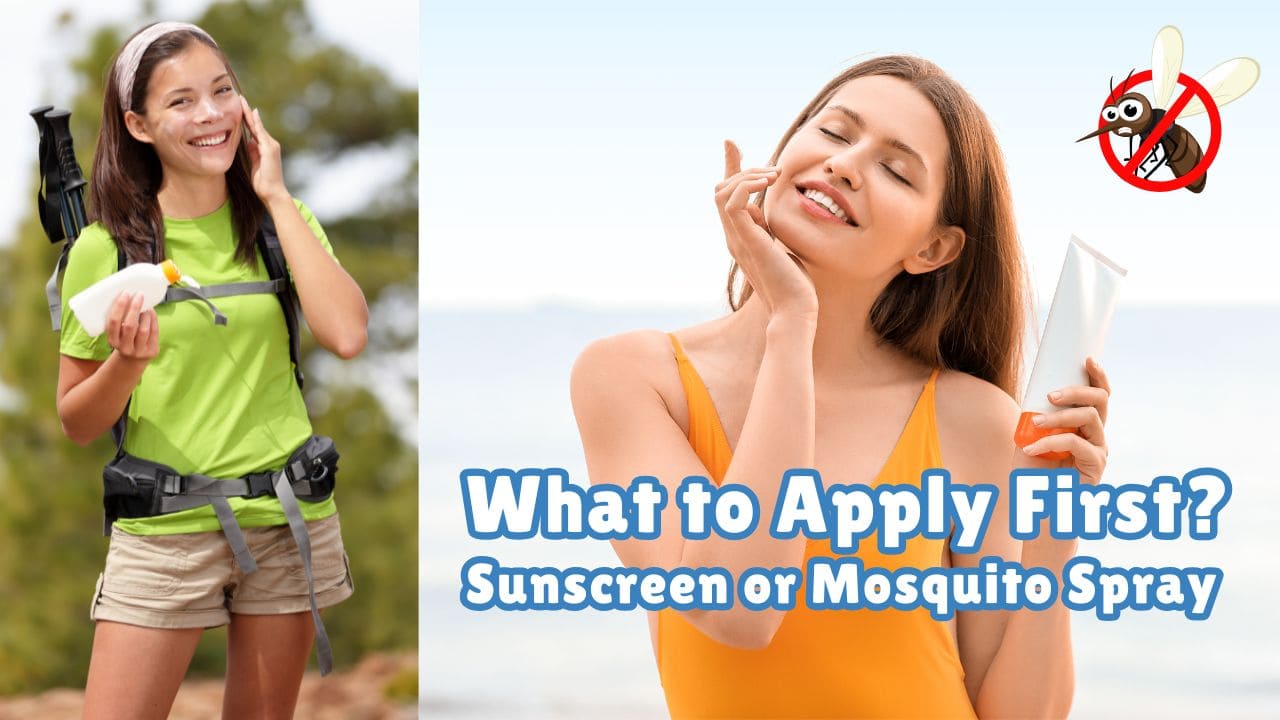Introduction
It is crucial to learn the proper sequence as well as the technique of application of sunscreen and mosquito spray, as without them one is bound to get sunburns and mosquito bites while on outdoor engagements.
This paper attempts to investigate the responses to these two products in relation to each other, as in the case of sunscreen, the mosquito repellent: will sunscreen serve as a barrier to mosquitoes? Or even, What to use first in that scenario, sunscreen lotion or mosquito repellent?
The significance of Sunscreen and Mosquito spray
Applying sunscreen allows one to inhibit the entry of harmful ultra-violet rays into the skin which can otherwise cause severe damage in the form of sunburn, accelerated skin aging, and even instances of skin cancer.
While the mosquito spray is used for a totally different purpose, as n insect or bug repellent. It prevents the person from getting mosquito bites which may cause infection such as West Nile, Zika, and dengue. Since both have their particular end uses, the right application method of each product is also necessary.

Does sunscreen prevent mosquito bites?
The primary purpose of sunscreen is protection against UV radiation. However, it does not offer any notable defense against mosquito bites. In fact, other studies indicate that certain ingredients in sunscreen could attract rather than repel mosquitoes.
Hence, it would be foolhardy to depend on sunscreens alone for protection against mosquitoes in outdoors specially mosquito-prone areas.
Does sunscreen repel mosquitoes?
No, mosquitoes do not avoid people who have applied sunscreen. The main purpose of applying sunscreen is to reflect or absorb the UV rays and protect the skin. Some formulations use natural oils to help enhance the product, but they are never replacement for mosquito repellent products containing DEET or Picaridin.
Can we use Sunscreen and bug spray together or they should be used separately?
There has been a controversy on whether to use a combination product or to use separate products for sunscreen and Insect repellent. Combination sunscreen products are made to be useful to the consumer but they rarely are very effective. Other studies suggest better results of using a separate sunscreen and insect repellent altogether.
For example, it has been estimated that the use of DEET along with various sunscreen formulations can decrease SPF performance level by greater than 30 percent. In addition to this, sunscreens may also increase the amount of DEET that infiltrates the skin, which pose threats to possible toxicity especially in children.
Sunscreen and Insect Repellent: Best practices for application
To maximize protection from both the sun as well as the insects, it is essential to do the following:
- Applying Sunscreen First: Broad-spectrum sunscreens should be used with a minimum SPF of 30 on all exposed skin at least 15 minutes prior to sunrise. This is so that the sunscreen is able to be absorbed appropriately.
- Let it Soak In: Mosquito repellents should be used at least 10-15 minutes after applying sunscreen so that it is absorbed into the skin. This delay serves a crucial purpose of providing the protective barrier.
- Apply Insect Repellent: Exposed skin may be sprayed with DEET or Picaridin containing mosquito spray as soon as the sunscreen has dried up. Do not apply on the nude face; instead spray first on the palm and then the face.
- Reapply as Needed: One should keep reapplying the sunscreen after every two hours or even after swimming or sweating to be safe. As for the insect repellents, they are typically used every two to six hours depending on its concentration.
What do you apply first, Sunscreen or mosquito spray?
Among experts, there is a general consensus, both in health and dermatology circles, about using sunscreen first and lastly bug repellants. When sunscreen is applied first the skin absorbs the sunscreen which takes some time, and later when mosquito spray is applied it gives protection from mosquitoes, and in this way both the products can be used effectively.
This kind of order permits you to be fully protected from the sun without losing any benefits of either products.

Best Sunscreen with Insect Repellent
If ease of use is the end goal, then there are products that serves as both a sunscreen and an insect repellent. Though, they must be used carefully:
- Avon Skin So Soft Bug Guard Plus: Contains SPF 30 along with insect-repelling characteristics, but might not be as good as applying them separately.
- Bullfrog Mosquito Coast Bug Spray with SPF 50: Provides high protection against sun and active defense against mosquitoes.
- Elemnt Life Insect Repellent Sunscreen: Development of this product engages in insect and sun protection in one application and is intended for outdoor activity.
In case of finding a product, choose those that are labeled as “broad-spectrum” when it comes to UV coverage and those with active repelling agents such as DEET or Picaridin.
📰 Must Read,
✔️ Home Remedies to Get Rid of Mosquito Bites Overnight
✔️ What Colors are Mosquitoes Attracted to?
Conclusion: Which do you apply first sunscreen or bug spray?
In conclusion, it can be said that both sunscreen and mosquito or bug spray have a significant role during outdoor activities. However, they differ in the usage and application. For instance, sunscreen does not provide protection against mosquito bites or have any sort of insect repelling features, therefore, it is more effective to use it only for protecting the skin from sunburn and insects.
When the use of these two products is inevitable, make sure to use sunscreen first and wait before applying insect repellent lotion to let the skin absorb the sunscreen properly. Through the above measures, one can go out in the sun with ease and not in any danger of being sunburnt or having suffered from insect bites.
Frequently Asked Questions (FAQs)
-
How often should I reapply sunscreens and bug sprays?
Make it a habit to permeate the skin with UV filtrating agents every two hours or once after swimming or immersion in water or when the body has sweated in excess. It should be reapplied within two to six hours, depending on the strength and effectiveness of the product against the mosquitoes.
-
Which are the best sunscreens for sensitive skin?
Sensitive skin of women especially find comfort in Blue Lizard Sensitive Mineral Sunscreen SPF 50+ because it uses a formula containing zinc oxide and titanium dioxide without any added fragrance. Another very good product is Purito Daily Go-To Sunscreen SPF 50, for its moisturizing effect that has less irritation.
-
Are there any natural insect repellents that is effective and work well?
Yes, in the list of effective natural insect repellents are those containing citronella oil, lemongrass oil, and lavender oil. Thanks to their mild and skin-safe ingredients and active compounds, that can repel mosquitoes, which can be safely applied on skin as it is far more gentle on skin than artificial repellents.

